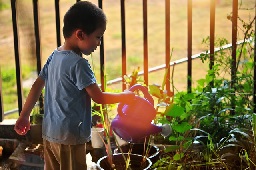Science in Time-Short Classrooms, Post
- On Feb, 13, 2024
- Tutoring Primary
- Blog
Science in Time-Short Classrooms
Simple Ways
Science in Time-Short Classrooms has some ideas that are workable for busy teachers. It combines the science context with literacy lessons.
Also, parents can follow these simple principles when teaching their own children in the home setting.
1 — A set reading piece on a science topic provides children with basic information and concepts. It also educates them in science literacy.
2 — Short writing tasks reinforce the learning; and
3 — Experiments and practical tasks could follow. These confirm and extend learning.
The TIMSS Report 2011 states that current testing methods maintain
“a focus … on testing comprehensive coverage of concepts at a relatively low level of reasoning and problem solving”.
Discussion of the Report can be found at: http://www.acola.org.au
Our comment is:
- One purpose of testing is to confirm transfer of content and development of concepts and skills.
- The second purpose is to inform future teaching by finding out where the weaknesses are.
If students do not have the knowledge,
how can knowledge be applied to reasoning and problem-solving?
Making Small Changes
Links: “Daffodils” Literacy Grade 2 . This looks at one example of a plant. And in Year 4,5 or 6 “Mushrooms and Moulds” Science Grade 4 , and Year 5-7 “Trees” Science Literacy Grade 5,6
The situation has not changed much since 2011. Statements were made through the media in 2018 that lead one to believe that. There are easy and less dramatic modifications that primary schools can make. https://www.educationcounts.govt.nz/data-services/international/timss/timss-201819 Comment:
- Adopt a modified combination of enquiry learning and explicit instruction; and
- Avoid giving enquiry tasks for children to do at home when we all know that the parents are doing the work.
- Introduce enquiry tasks for science later.
Borrow from Literacy lesson time:
1 — Increase science content in literacy classes. Content assumes greater importance in literacy lessons.
2 — Primary (elementary) school teachers could be reminded that literacy learning is largely skills based, not content based, especially at the Upper Primary and Secondary (high) School levels.
Learning writing conventions is the only content based component of Literacy lessons unless the text is fiction. Therefore a lot more content can be science based. It can be history based and still satisfy the requirements of literacy curricula.
Fair use/dealing claimed on illustrations.